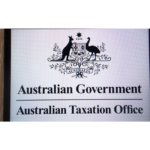Criminal Offences Relating to Money Laundering in Australia

A 59 year old Sydney woman has been sentenced to 2 years and 11 months imprisonment for acting as an ‘auntie’ in a Vietnamese organised crime network, and illicitly laundering funds.
Targeting ‘money laundering’ is a key focus for State and Federal law enforcement, with specialised laws develop to target this largely hidden activity.
What Is Money Laundering?
Money laundering is the process of ‘cleaning’ dirty money to give its source a legitimate appearance. Money is ‘dirty’ when it is is generated from illicit activities, encompassing offences ranging from theft, fraud, drug trafficking, sex trafficking, bribery and corruption.
Examples of money laundering techniques include:
- Smurfing: where illegal funds are divided into smaller amounts and deposited into multiple bank accounts or financial institutions.
- Exploiting cash-based businesses: where an business-type known for mainly taking in cash (including car washes, laundromats, strip clubs and small retailers) are used to hide illicit money as income.
- Bulk cash smuggling: which involves the physical transportation of large quantities of illicit cash across borders in order to avoid mandatory financial reporting obligations in some jurisdictions.
- Trade based laundering: which exploits international trade by disguising the proceeds of crime by moving funds through trade transactions.
- Real estate laundering: where criminals invest illicit funds into the property market.
- Gambling laundering: where the launderer uses relatively ‘low risk’ gambling games such as blackjack or roulette, to mask illicit funds. The launderer relies on evidence that they lose a portion of their money in the games, hiding the real goal of ‘cleaning’ the illicit money.
- Cyberlaundering: which can involve transforming illicit money into cryptocurrency or utilises encrypted networks on the ‘dark web’ to transfer funds. The rise of cyryptomarkets has meant launderers can mix licit and illicit funds in unique ways hiding the true origins of their income.
Financial Reporting Obligations
One of the key ways that Australia is identifying and tackling money laundering is by imposing certain Anti Money Laundering and Counter Terrorism Financial (AML/CTF) obligations on key institutions at risk of being used to launder money.
Section 6 of the Anti-Money Laundering and Counter-Terrorism Financing Act 2006 (Cth) outlines a range of ‘designated services’ that must regular report suspicious activities including financial services organisations, remittance service providers, the gambling sector and bullion dealers.
These organisations must register with Australian Transaction Reports and Analysis Centre (AUSTRAC) is the key government agency responsible for detecting, deterring and disrupting criminal abuse of the financial system.
Reporting obligations on relevant ‘designated’ services’ are quite extensive and include completing:
- Threshold transaction reports for transfers of physical currency of A$10,000 or more (or the foreign currency equivalent.
- International funds transfer instruction reports (IFTIs) for instructions to send or receive money overseas.
- Cross-border movement reports about carrying, mailing or shipping physical currency valued at A$10,000 or more to or from Australia.
- Suspicious matter reports for any transaction or interaction that makes you suspicious that someone is acting illegally.
Failure to comply with AML/CTF obligations by designated services could lead to significant penalties including fines up to $27 million for a corporate and $5 million for an individual.
NSW Offences Against Money Laundering
There are a variety of money laundering offences under the Crimes Act 1900 (NSW) covering a broad range of activities.
Section 193B(1) of the Act outlines an offence where a person deals with proceeds of crime, knowing that it is proceeds of crime and intending to conceal that it is proceeds of crime. This offence carries a maximum penalty of 20 years imprisonment.
Lesser offences are listed under section 193B(2) for knowingly dealing with proceeds of crime, carrying a penalty of 15 years imprisonment, and under section 193B(3) for dealing with proceeds of crime recklessly, carrying a penalty of 10 years imprisonment.
Section 193BA of the Act outlines an offence if a person deals with proceeds of general crime with a value of $100,000 or more, being reckless as to whether it is proceeds of general crime, and intending to conceal or disguise features of the property. This offence carries a maximum penalty of 15 years imprisonment. Proceeds of general crime including an money or other property that is wholly or partly derived or realised, directly or indirectly, by a person from the commission of an offence.
Similar offences are outlined under section 193C for dealing with property suspected of being proceeds of crime.
Section 193CA outlines a number of ‘reasonable grounds’ to suspect property is proceeds of crime including where:
- Dealings were undertaken to avoid AML/CTF reporting.
- Dealings involve using one or more accounts held with authorised deposit-taking institutions in false names.
- The defendant had, in the defendant’s physical possession, more than $100,000 in cash without lawful excuse.
- The value of the property involved in the dealing is, in the opinion of the trier of fact, grossly out of proportion to the defendant’s income and expenditure over a reasonable period within which the dealing occurs.
- The dealing involved the use of a token or other unique identifier that preserves the anonymity of one or more of the parties to the dealing.
- The dealing involved the use or possession of falsely subscribed telecommunication services, or a dedicated encrypted communication device.
- The defendant possessed or accessed instructions that, in the opinion of the trier of fact, are consistent with money laundering.
- The dealing involved a clandestine meeting or the use of a concealed compartment.
- The defendant has stated that the dealing was engaged in on behalf of or at the request of another person, and has not provided information enabling the other person to be identified and located.
Federal Offences Against Money Laundering
Extensive offences relating to money laundering are also provided under the Criminal Code Act 1995 (Cth). Offences are seperate into:
- Tier 1 offences, where a person knowingly deals with proceeds or crime or intends that the money or property will become an instrument of crime.
- Tier 2 offences, where a person recklessly deals with proceeds of crime (whether knowingly or not) or where there is a risk that the money or property will become an instrument of crime.
- Tier 3 offences, where a person negligently deals with proceeds of crime or money or property which may become an instrument of crime
Tier 1 offences carry maximum penalties of:
- Life imprisonment for proceeds valued over $10 million.
- 25 years for proceeds valued over $1 million.
- 20 years for proceeds valued over $100,000
- 15 years for proceeds valued over $50,000.
- 10 years for proceeds valued over $10,000.
- 5 years for proceeds valued over $1,000.
Tier 2 offences carry maximum penalties of:
- 15 years for proceeds valued over $10 million.
- 12 years for proceeds valued over $1 million.
- 10 years for proceeds valued over $100,000.
- 7 years for proceeds valued over $50,000.
- 5 years for proceeds valued over $10,000.
- 2 years for proceeds valued over $1,000.
Tier 3 offences carry maximum penalties of:
- 6 years for proceeds valued over $10 million.
- 5 years for proceeds valued over $1 million.
- 4 years for proceeds valued over $100,000.
- 3 years for proceeds valued over $50,000.
- 2 years for proceeds valued over $10,000.
- 1 year for proceeds valued over $1,000.
Each of these offences also include penalties of significant fines.
Charged with a money laundering offence?
If you have been accused of an offence relating to money laundering, contact Sydney Criminal Lawyers anytime on (02) 9261 8881 for expert advice and formidable legal representation from Australia’s most awarded criminal defence team, who will fight to ensure you have the highest likelihood of a successful outcome.
Receive all of our articles weekly
Related Articles
RELATED LEGISLATION
- Anti-Money Laundering and Counter-Terrorism Financing Act 2006 (Cth)
- Section 193B Crimes Act 1900 | Money Laundering
- Section 193C Crimes Act 1900 | Dealing With Property Suspected of Being Proceeds of Crime
- Section 400.3 Criminal Code Act 1995 | Dealing in Proceeds of Crime $1,000,000 or more
- Section 400.4 Criminal Code Act 1995 | Dealing in Proceeds of Crime $100,000 or more
- Section 400.5 Criminal Code Act 1995 | Dealing in Proceeds of Crime $50,000 or more
- Section 400.6 Criminal Code Act 1995 | Dealing in Proceeds of Crime $10,000 or more
- Section 400.7 Criminal Code Act 1995 | Dealing in Proceeds of Crime $1,000 or more






